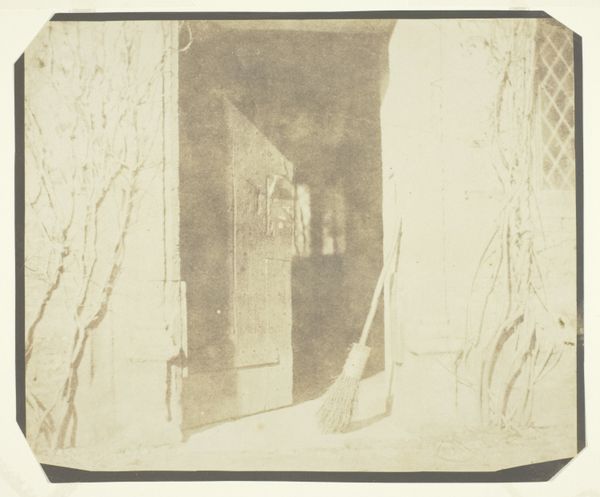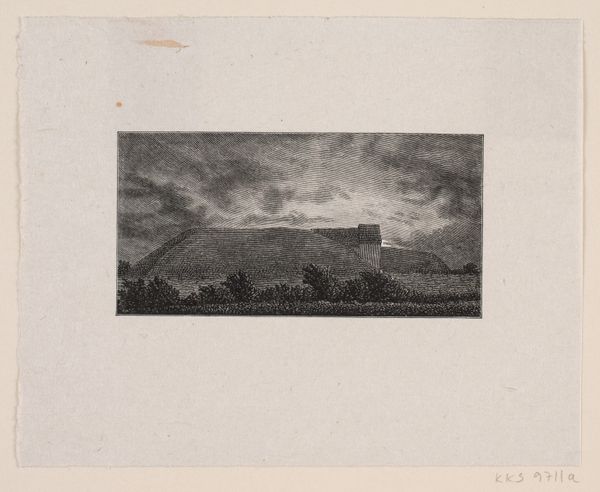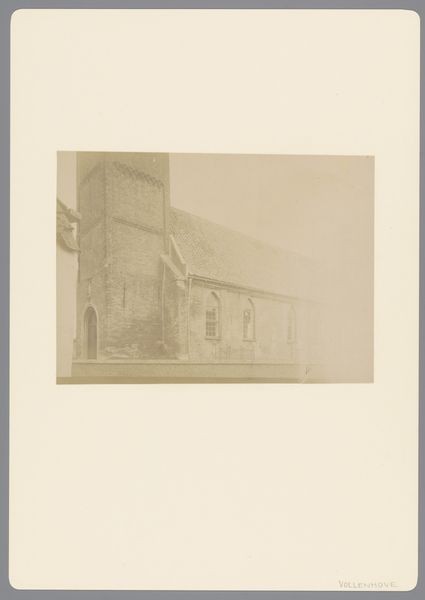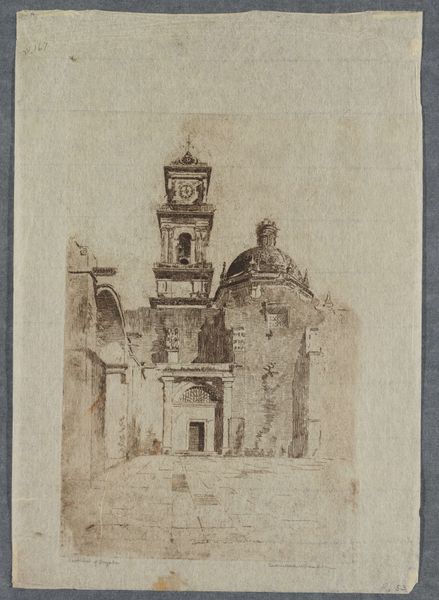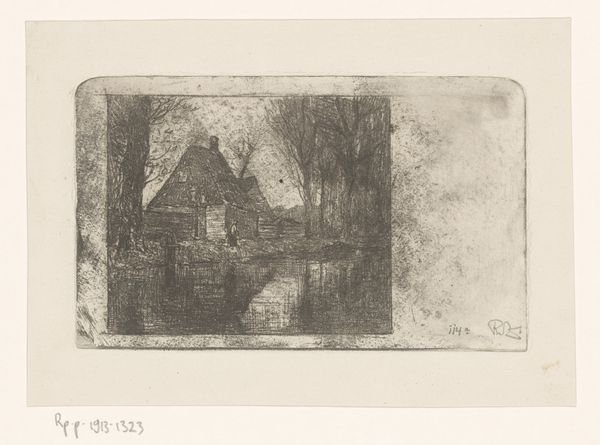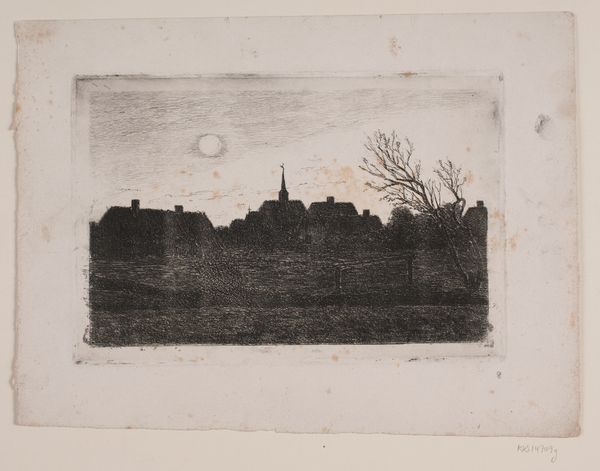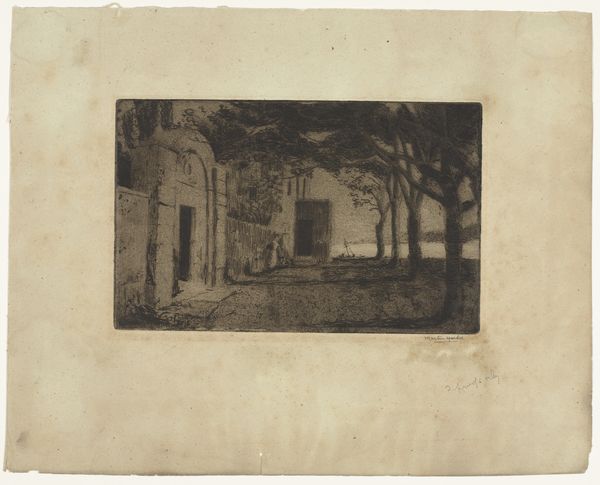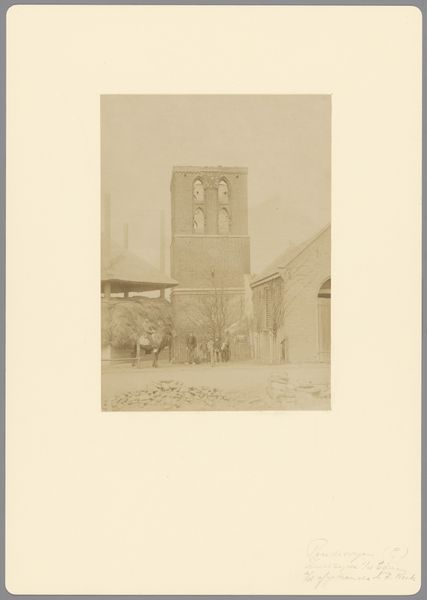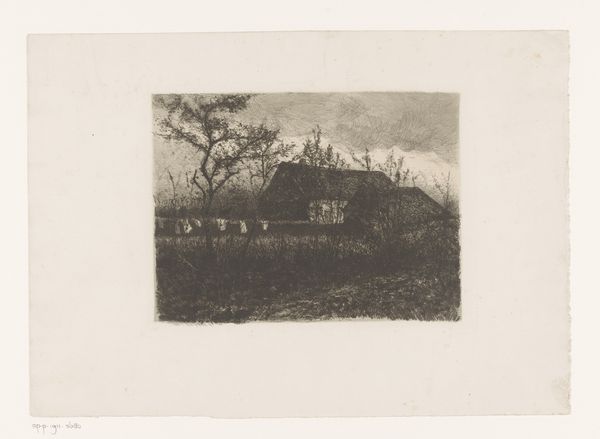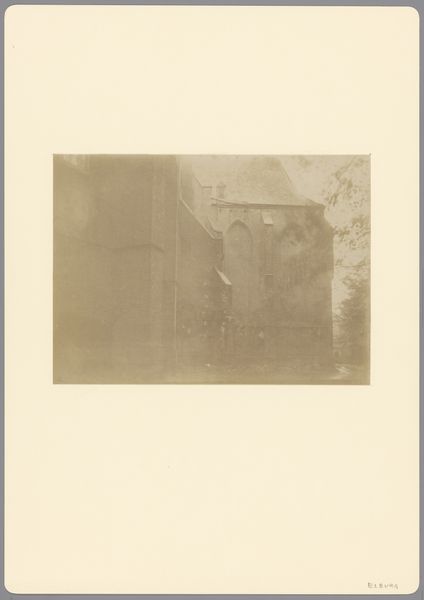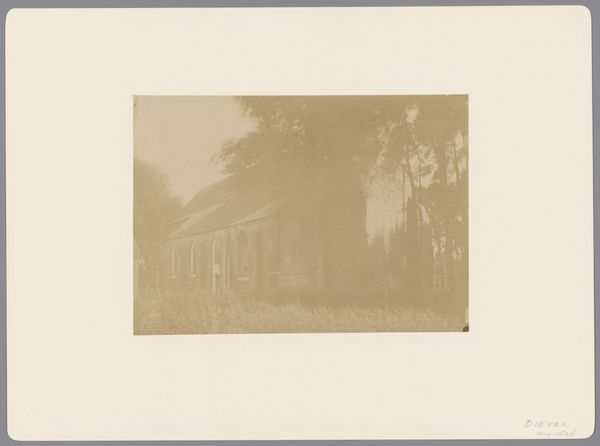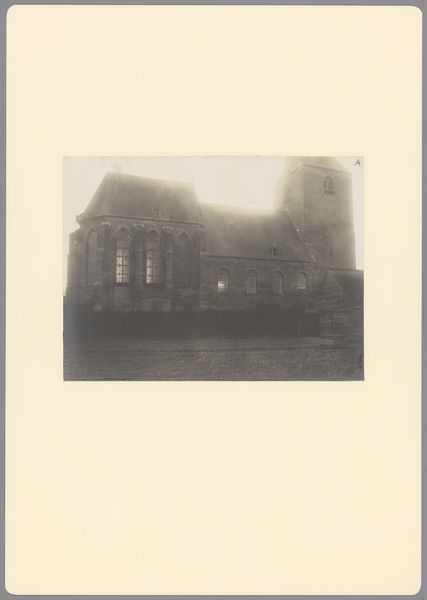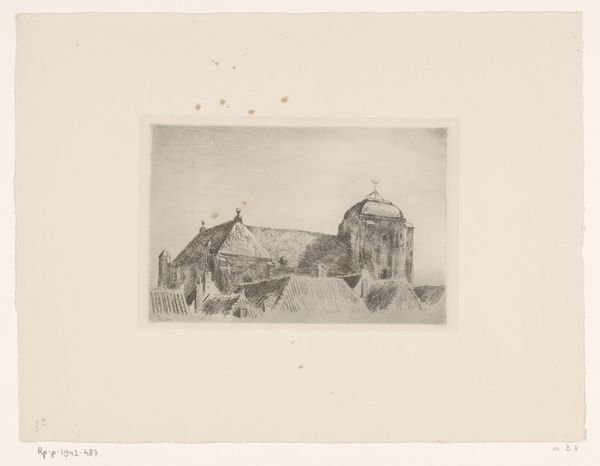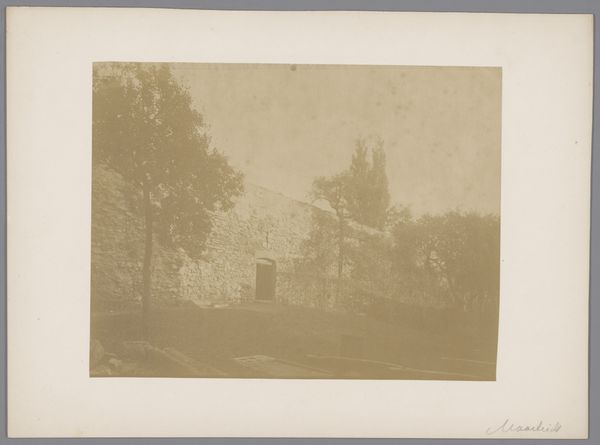
print, daguerreotype, paper, photography, site-specific, architecture
# print
#
landscape
#
daguerreotype
#
paper
#
photography
#
site-specific
#
modernism
#
architecture
#
realism
Dimensions: 13.4 × 16.9 cm (image/paper); 29.6 × 24.9 cm (mount)
Copyright: Public Domain
William Henry Fox Talbot made this photogenic drawing of the Radcliffe Library in Oxford at an unknown date. Talbot’s image of this iconic Oxford landmark speaks volumes about the social and intellectual values of 19th-century Britain. Architecture, like art, reflects the priorities of a society. The Radcliffe Library was built in the Palladian style that was popular with the British aristocracy and gentry, a style that consciously evoked the architecture of ancient Greece and Rome, cradles of Western civilization. The architecture of British institutions, such as the Radcliffe Library, were designed to reinforce ideas of social order. Historians study buildings like this, alongside other documents, to get a better understanding of how knowledge was produced, cataloged, and disseminated in the past. We might ask, who had access to this library, and how did it shape intellectual life in Oxford and beyond? Considering these questions helps us understand how the social and institutional context shaped the meaning of this photograph, and the building it depicts.
Comments
No comments
Be the first to comment and join the conversation on the ultimate creative platform.
